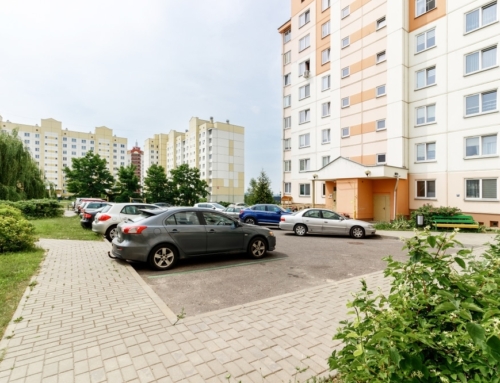If you are renting your condo, it’s important to know your condo association’s rules and regulations and try negotiating rental fees.
Q: I read your column every Sunday. I own a condominium in Virginia and rent it out. I realize condominium associations try to limit renters to make sure they are an FHA-approved building and also to keep property values up but I think our condo association is misinterpreting one rule and has illegally created the second rule.
We have a move in/move out rule where we pay $200 to move in or out of the property. The intent of the rule is to cover the wear and tear on the building and for administrative time in arranging the move. I have a tenant that has a family member coming to stay with her for a few months. But he is moving in with a suitcase and laptop bag. The property manager is trying to charge a $200 move in and a $200 move out fee.
How would you go about getting clarification on this issue and does this seem legal?
Here’s the second issue: The condo association adopted a new rule in 2010 to charge an annual lease administrative fee of $100. They even charge this fee for renewals. I have a friend that is a property manager with a large property management company and asked him about this and he didn’t think it was legal.
Do you think this annual fee is legal? How would I get the property management company to understand it’s not legal and get it removed?
A: Leaving the legal issues aside for a moment, more and more businesses are adding fees to their basic costs. If you buy a washing machine, you’re asked if you want to buy a warranty. If you travel on an airline, you’re asked to pay more for luggage, window seats and food. If you close on a real estate transaction, you’re asked to pay fees left and right. It seems that we need to monitor the fees that go along with the basic purchases more so than the base cost of our purchases.
In your case, property management companies have moved to this type of pricing structure. We own various real estate properties as well. We have seen an explosion of fees and have paid (or our tenants have paid) move in and move out fees, transfer fees, document delivery fees among other fees.
We would say that condominium and homeowner associations have the right to charge reasonable fees relating to their duties delivering specific services to specific homeowners in their association. Where a specific owner requests a repair to their unit, the manager can charge that unit owner for the repair. The manager can also charge that owner a fee to prepare documents for a sale, refinance of a mortgage, lease of a unit or preparation of a paid assessment letter.
We have also seen insurance companies charge for the issuance of certificates of insurance in connection with a sale of a condominium or the refinancing of a loan.
You would have to talk with an attorney that researched this issue in your state to see if the condominium laws in your state restrict how condominium and community associations charge for their services. If the law states that the association may charge a “reasonable” fee to reimburse it for charges incurred and associated with the service provided, you might have a high burden to prove that a $100 or $200 fee is not reasonable to review documents on leasing a property or to cover the wear and tear on the building caused by a move-in or move-out of a building.
If you can prove that the fee is not reasonable, you might have a case and can bring that issue up with the board that manages the association of the unit you own. Otherwise, it might be easier for you to pay the money and move on.
On the issue of the guest that’s coming to stay with your tenant, many associations have rules relating to guests and a guest may be someone that comes for a day or so, or maybe a week or two. But the building has the right to know when people are actually living in the property for an extended period of time. You might want to re-read the rules for the association. When you read them, you might want to see what they say about guests and invitees that come and stay in the units.
If you were married and your wife died and you met someone new, would the association charge you a move in fee to have your new wife or girlfriend live with you? Would they charge a move out fee for your spouse that died? Some of these issues can be tricky and the association might wish to waive the requirement of the move-in fee for this family member unless they want to deal with the broader issues that may arise with this fee.
We recently dealt with this same issue on one of our buildings. They, too, have a similar rule. If a tenant signs a lease and later adds another person to the lease, the association will charge a lease change fee of $100. When we questioned them as to how they handle divorces and other life change situations, they didn’t have an answer and were going to bring it to the board’s attention. It seemed to us that the building was going to have some flexibility in dealing with these changes or would have to bill everybody equally.
These are interesting issues and when buildings don’t deal with them fairly, there is always a person willing to find an attorney to help them clear the air. In some cases, attorneys have filed class action suits against companies for small fees that have been charged. It would not surprise us if an association fee of this type might come to litigation in larger associations, especially once the amount of these fees creeps up high enough.
One final thought: we know of a condominium building that charges a $3,000 fine if a tenant has an unauthorized occupant live in the unit with them. In your situation, you’re better off seeing if the building would waive the move in and out fees, but offer to pay a transaction fee for the approval of the long term relative to live in the unit and avoid a bigger problem down the line.
You might try to talk to the manger or one of the board members to see if you can get more information and a little clarification. You might find them willing to waive some or all of the fees relating to the guest but not on the leases and the renewals.





Leave A Comment